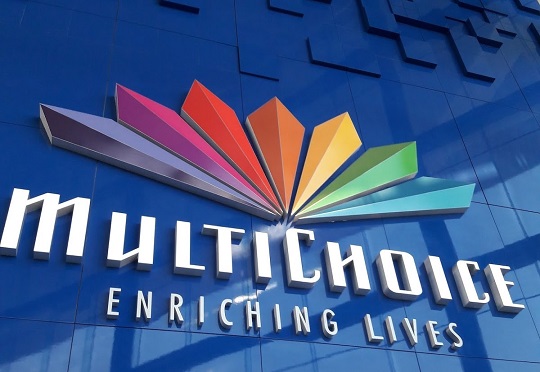Six years of sustained action, 61,000 tonnes diverted, and a blueprint for circular economy in Africa’s most populous nation
Every year, Nigeria generates about 2.5 million tonnes of plastic waste, yet less than 10 percent is effectively recycled. The remainder clogs waterways, suffocates ecosystems, blocks drainage systems, and worsens flooding—a recurring crisis that costs lives, livelihoods, and billions in infrastructure damage.
Ranked 140th out of 180 nations in the 2024 Environmental Performance Index, Nigeria continues to face the devastating impact of environmental degradation on public health, the economy, and natural ecosystems.
With its fragile economy and low adaptive capacity, sustainability has become not just an aspiration but a necessity.
Amid these daunting challenges, Nestlé Nigeria has been quietly writing a new narrative—one built on consistent action, not rhetoric.
Beyond Corporate Speak: The Numbers That Matter
Since 2019, Nestlé Nigeria has diverted over 61,000 tonnes of plastic waste from landfills. This achievement stems from long-term partnerships with recyclers and social enterprises such as Chanja Datti, Wecyclers, and Maladase Ecopreneur Management Ltd.
To visualize the scale, 61,000 tonnes equal the weight of roughly 400 blue whales or enough plastic to fill more than 2,000 garbage trucks.
Through its Plastic Advantage Programme, Nestlé supports 43 mini-aggregators with training, equipment, and financial incentives.
This initiative expands collection capacity while creating income streams for thousands of informal waste pickers—individuals who, though often overlooked, form the backbone of Nigeria’s recycling ecosystem.
This year, the company mobilized 516 volunteers from its offices and factories across 11 cities for nationwide clean-up and community sensitization campaigns. I
n collaboration with the African Clean-Up Initiative (ACI) and local authorities, the effort targeted key markets including Oke-Arin in Lagos, Utako in Abuja, Abubakar Rimi in Kano, and Satellite Market in Jos.
Together, volunteers removed 5,601 kilograms of solid waste and 379.2 kilograms of recyclable materials—proof that well-structured partnerships can yield measurable results.
The Circular Economy: From Concept to Community
Nigeria’s lack of recycling infrastructure remains a major hurdle. Nestlé has responded by helping to build that capacity from the ground up through the Food and Beverage Recycling Alliance (FBRA), a Producer Responsibility Organisation established by major consumer goods companies.
However, infrastructure alone doesn’t drive change—people do. Recognizing this, Nestlé launched a Safety, Health, and Environment (SHE) Training Programme in 2024, empowering 100 plastic waste workers across Lagos and Abuja.
Supported by the National Environmental Standards and Regulations Enforcement Agency (NESREA), the Recyclers Association of Nigeria (RAN), and FBRA, the training addressed critical topics such as occupational health and safety, proper material handling, fire prevention, and effective use of personal protective equipment.
This initiative extends beyond environmental goals to affirm human dignity. By investing in the safety and wellbeing of waste pickers, Nestlé is tackling what advocates describe as the “people side” of sustainability—ensuring that those who keep cities clean are themselves protected and empowered.
Climate Resilience Beyond the Factory Gates
Nestlé’s commitment also extends to environmental restoration. Under the Nestlé Cares volunteer platform, employees joined forces with the Convention for Business Integrity Innovations Nigeria Limited (CBiIL) to plant 1,000 trees at the company’s Dairy Demonstration Farm in Paikon-Kore, Abuja.
Held in commemoration of the 2024 World Environment Day, the tree-planting project aims to mitigate harsh weather effects on the farm and strengthen climate resilience.
This initiative supports several Sustainable Development Goals (SDGs), including Zero Hunger, Good Health and Well-being, Clean Water and Sanitation, Decent Work and Economic Growth, Responsible Consumption and Production, and Climate Action.
Nestlé’s approach underscores a vital principle: environmental challenges intersect with every aspect of sustainable development.
The Long Game
Nigeria’s environmental struggles are well-documented. Despite policy milestones such as the Climate Change Act (2021)—which targets net-zero emissions by 2060—and the upcoming ban on single-use plastics in January 2025, progress remains slow.
According to the Department of Climate Change, Federal Ministry of Environment, Nigeria remains highly vulnerable to the negative impacts of climate change. Deforestation, oil pollution, poor urban design, and weak enforcement of environmental regulations continue to worsen the situation.
Against this backdrop, Nestlé’s six-year drive reflects a rare form of corporate persistence. The company’s framework, “Building a Circular Nigeria: How Private Sector Collaboration is Transforming Plastic Waste into Opportunity,” highlights that progress is achievable through long-term, collective effort rather than short-term campaigns.
What Success Actually Looks Like
Nigeria’s path to sustainability will not hinge on a single project or company. Yet Nestlé Nigeria’s model presents a viable blueprint: multi-year commitment, investment in informal workers, collaboration with government and community stakeholders, and transparent reporting of measurable impact.
From bustling markets like Oke-Arin in Lagos to farmlands in Abuja’s Paikon-Kore grazing reserve, from training waste pickers to supporting mini-aggregators, the results are visible and replicable. Nestlé’s journey demonstrates that environmental responsibility can transcend public relations to become a core business practice.
As Nigeria battles 2.5 million tonnes of plastic waste each year and strives to rise in global sustainability rankings, the real question is not whether companies should act—but whether they will sustain that action.
Six years on, with 61,000 tonnes of waste diverted and counting, Nestlé Nigeria proves that the answer can be yes—when commitment is measured not in campaigns, but in decades.







Comment
No comments found.